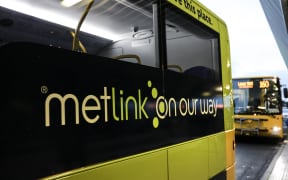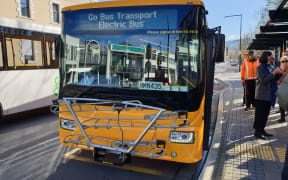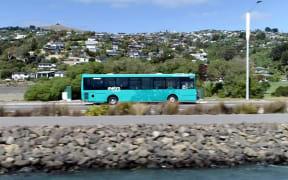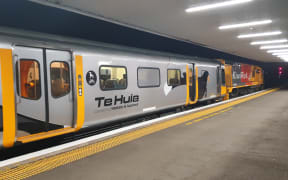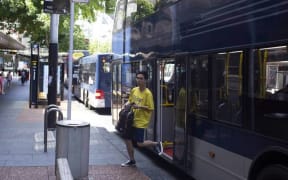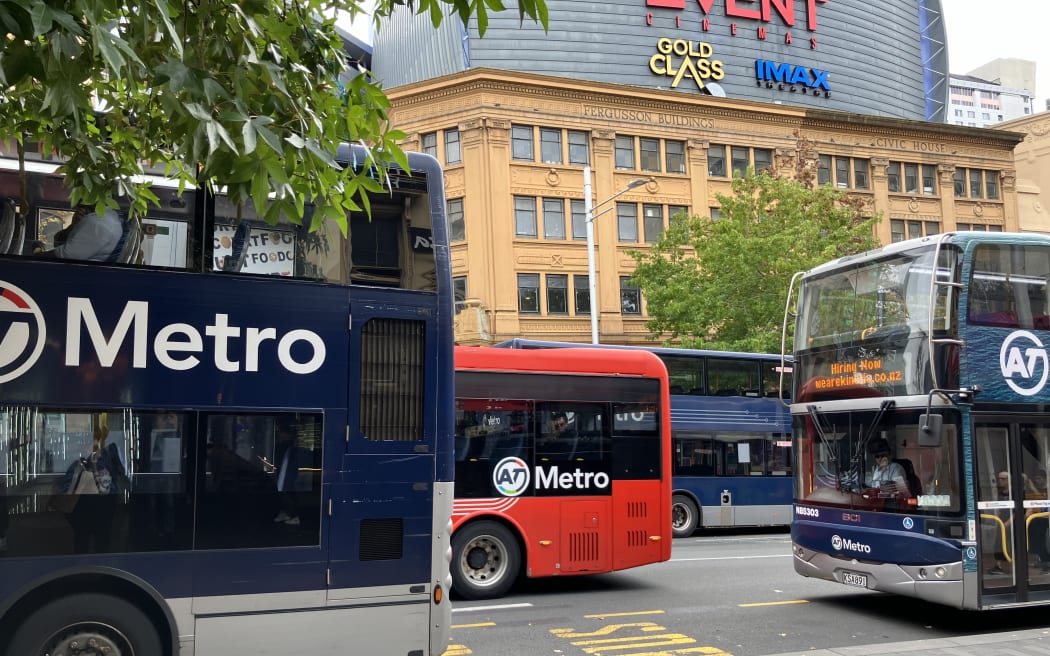
The public transport subsidy is coming to an end. Photo: RNZ/Leonard Powell
One of the government's upcoming changes is causing a stir among young commuters.
The public transport subsidy will end on 30 April, meaning 16-24 year olds will no longer be paying half price.
It also means an end to free rides for those aged between 5-15.
Some councils are making commuters front up the cash, while others are dipping into their own pockets to keep public transport free or cheap.
First Up visited several bus stops in central Auckland to see what young people thought.
Jess, 16, was no stranger to public transport, travelling around 25km on two buses and a train from Māngere into the Auckland CBD five days a week.
She usually spent $25 or $50 per week and said the half-price fares for young people should stay.
"I think that's kind of trash ... elderly people, they get free rides via their gold card and that."

Jess says it isn't fair that elderly people get free public transport when young people have to pay full price. Photo: RNZ/Leonard Powell
Half-price fares were first introduced in March 2022 to woo commuters back onto buses, trains and ferries after Covid-19.
They were originally for all ages, but were ended for over-25s in 2023, with the subsidy for those aged 16-24 remaining in place until now.
Duncan, 26, said the amount of money he spent on bus fares did not bother him when they were half price.
"I kind of delegate the money now it's back to full price. I definitely know it's a chunk coming out of my paycheck, you know?"
He spent about $50 a week to catch the bus from Onehunga into town, and said it soon mounted up
"Its like $5 either way, which sounds fine until you realise you're spending $10 a day and then you're spending that five days a week. And then you try to argue that you're saving money by not getting fuel for a car or anything, but it feels like I'm spending an awful lot."
Duncan said 16- to 24-year-olds were often the people who desperately needed help financially.
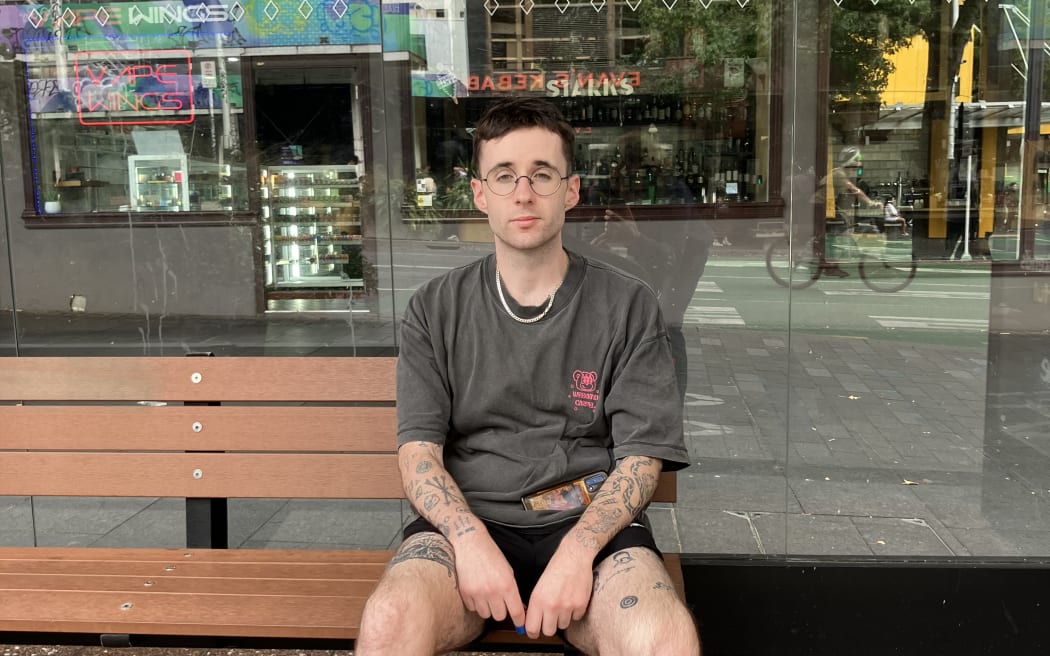
Duncan says public transport takes a "chunk" out of his earnings each week. Photo: RNZ/Leonard Powell
"A lot of them don't have good jobs or anything. You know, a lot of them just working part time or just go to uni. So it's gonna take way more of a sum out of their pay than someone like me who has a full time job."
Sheeshan said he had been catching the bus into Auckland CBD from Blockhouse Bay for 16 years. He said anyone who used public transport should be rewarded.
"I think (the discounts) should be for everyone, because not just under-25s are using the transport, everyone uses it. There should be some incentives."
Otago Regional Council is keeping free fares for children aged 5 to 12, while Invercargill City Council has extended the subsidies for two months while waiting for data to see what difference they have made.
Invercargill city councillor Lesley Soper said public transport use was declining in the area, but she would love to see public transport embraced.
"I'm very passionate about public transport being used in that wider context of climate change and how we can address the whole wider world issues. And it seems to me that we have the ideal opportunity with subsidised fees for young people, of getting young people under the habit of seeing public transport as a viable and sensible option to use.
"Let's get as many single-use private vehicles off the road as we can for young people going to school, work and sports activities."
